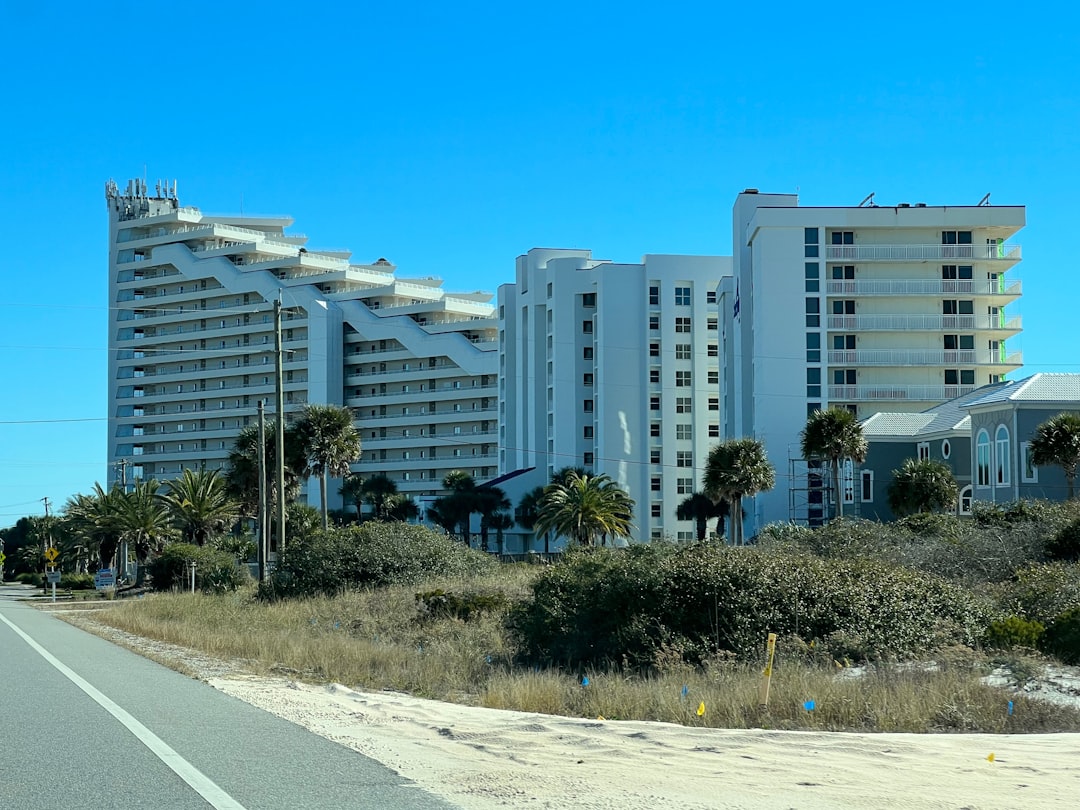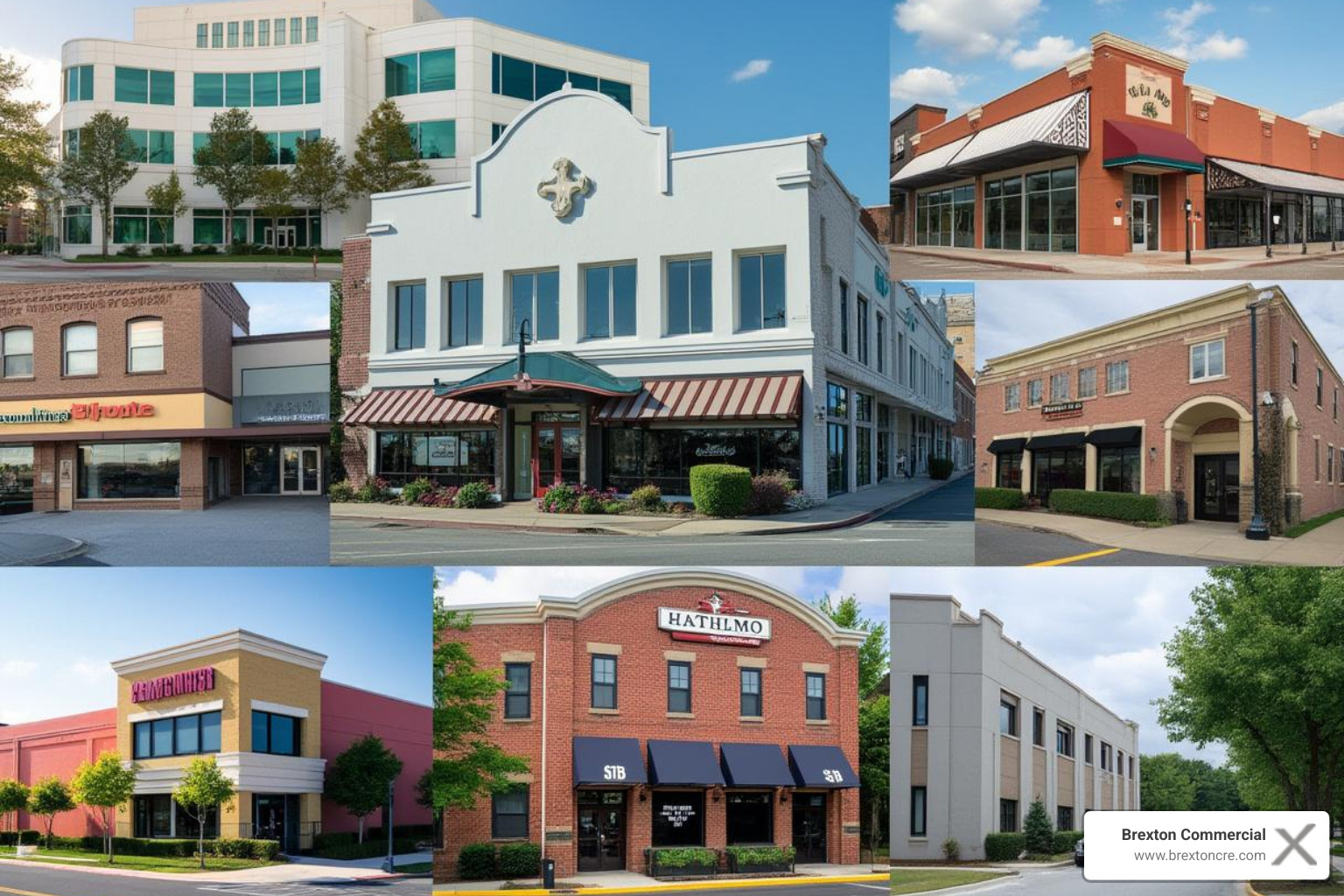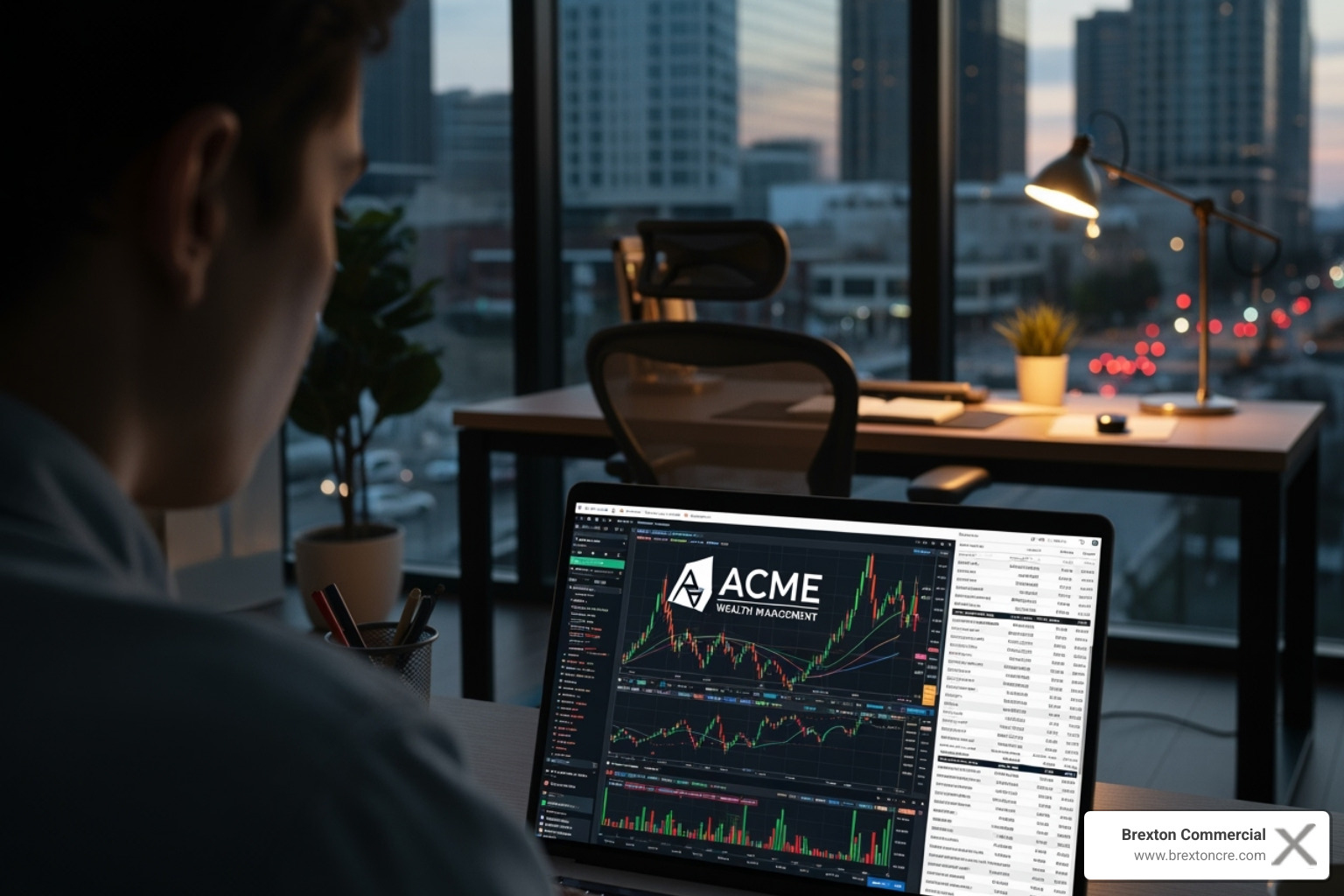Commercial real estate washington dc is a dynamic sector that has seen remarkable changes over recent years. The nation's capital, known for its iconic monuments and vibrant culture, offers a myriad of opportunities for investors and businesses alike.
Market Overview: As of recent years, Washington D.C. has experienced robust retail growth, a surge in new business applications, and notable strides in adaptive reuse projects, changing old office spaces into desirable residential units.
Current Trends: The city is leading the way in office-to-multifamily conversions, aiming to revitalize underused spaces. Vacancies climbed close to 20%, but innovative reuse projects like The Geneva are setting new benchmarks. Moreover, retail spaces have rebounded impressively post-COVID, attracting both tourists and locals.
Investment Opportunities: With a steady rental market and legislative incentives for conversions, D.C. presents a wealth of investment opportunities. Whether you're eyeing office buildings with potential for adaptive reuse, retail locations with high foot traffic, or sustainable developments, the city is ripe with potential.
Navigating the D.C. commercial real estate landscape requires careful strategy and a keen understanding of ongoing trends. Investors seeking to capitalize should consider the area's diverse opportunities and the support of experts like Brexton Commercial to guide their endeavors.

Commercial real estate washington dc glossary:- largest commercial real estate firms- top commercial real estate firms dc
Understanding the DC Commercial Real Estate Market
Washington D.C.'s commercial real estate market is in a state of change, driven by shifts in office space usage, tax incentives, and innovative adaptive reuse projects.
Office Vacancy
Office vacancy rates in Washington D.C. have reached record highs, with a recent report showing a 21.2% vacancy rate. This trend is fueled by the rise of flexible and hybrid working models, resulting in a significant decrease in occupied office space. In 2023 alone, the city saw a loss of one million square feet of office occupancy. The high vacancy rates are a challenge but also present an opportunity for creative solutions.

Tax Abatement
To address these vacancies and encourage the conversion of office spaces to residential use, the D.C. government has introduced a tax abatement program. This initiative offers a 20-year tax break for property owners who convert their commercial properties into residential units, with a requirement to create at least 10 housing units during the abatement period. This program is crucial for maintaining the economic vitality of the city and ensuring these spaces do not remain empty.
Adaptive Reuse
Adaptive reuse is becoming a key strategy in the D.C. commercial real estate market. By repurposing underused office buildings into residential or mixed-use spaces, developers are breathing new life into the city’s urban landscape. This approach not only addresses high vacancy rates but also meets the growing demand for housing in the city. Projects like The Geneva are leading the charge, showcasing the potential of adaptive reuse to transform the market.
These trends highlight the evolving nature of commercial real estate washington dc. The combination of high office vacancy rates, tax incentives, and adaptive reuse projects are reshaping the market, offering new opportunities for investors and developers. As the city continues to adapt, stakeholders must remain agile and informed to make the most of these changes.
Commercial Real Estate Washington DC: Key Areas and Opportunities
Washington D.C.'s commercial real estate market is vibrant and diverse, offering a range of opportunities across downtown spaces, retail spaces, and office spaces.
Downtown Spaces
Downtown Washington D.C. is the heart of the city's commercial real estate activity. Known for its iconic landmarks and busy atmosphere, the area is a prime location for businesses seeking high visibility and accessibility. Office vacancies in downtown have created unique opportunities for investors to acquire and repurpose these spaces. The D.C. Comeback Plan aims to add 15,000 new residents downtown, driving demand for mixed-use developments that blend residential, office, and retail uses.
Retail Spaces
Retail spaces in Washington D.C. are experiencing a resurgence, bouncing back strongly after the economic challenges of COVID-19. Retail sales in the District saw a remarkable 52% growth between April 2020 and April 2021, highlighting the area's potential for retail investments. Retail areas near tourist attractions and cultural hubs are particularly attractive, offering businesses the chance to tap into both local and tourist markets. The rise in new business applications, which increased by 111% during the same period, further underscores the city's appeal for retail entrepreneurs.
Office Spaces
The office space landscape in Washington D.C. is undergoing significant change. The shift towards flexible and hybrid working models has led to increased office vacancies, presenting both challenges and opportunities. Developers are exploring adaptive reuse strategies to convert office buildings into residential or mixed-use spaces, capitalizing on city incentives like tax abatements. Notable projects such as The Geneva and City Ridge are leading examples of how office spaces are being transformed to meet new market demands.
In conclusion, the commercial real estate washington dc market is rich with potential for those looking to invest in downtown, retail, and office spaces. As the city evolves, these areas offer diverse opportunities for growth and innovation, making Washington D.C. a compelling destination for commercial real estate ventures.
Office Space Trends in Washington DC
Washington D.C.'s office space landscape is evolving rapidly, driven by the shift towards flexible working and hybrid working models. As many organizations accept these new ways of working, the demand for traditional office spaces has changed.
Flexible and Hybrid Working
The pandemic accelerated the trend of flexible and hybrid working. Many businesses are now opting for office spaces that offer flexibility, such as shared workspaces and co-working environments. This shift allows companies to adapt to changing workforce needs, reducing the necessity for large, fixed office areas.
Flexible office spaces provide the benefit of scalable solutions, where businesses can adjust their space requirements without long-term commitments. This trend is evident in Washington D.C., where companies are increasingly favoring leases that offer adaptability to accommodate fluctuating employee presence.
Office Conversions
With rising office vacancies, Washington D.C. is seeing a surge in office conversions. Old office buildings are being creatively repurposed into residential or mixed-use developments, aligning with the city's goals to revitalize downtown areas.
The city is actively encouraging these conversions through tax abatements and other incentives. For instance, a 2022 legislation provides tax benefits for projects that include affordable housing elements. This has spurred projects like The Geneva and City Ridge, where former office spaces are transformed into vibrant residential communities, adding over 1,000 new units to the city's housing market.

Market Implications
The trend of office conversions not only addresses the high vacancy rates but also supports Washington D.C.'s broader urban planning goals. By converting underused office spaces into residential areas, the city aims to increase its downtown population, creating a more dynamic and sustainable urban environment.
This change offers significant opportunities for investors and developers who can steer the complexities of adaptive reuse. The focus is not just on filling empty spaces but on reimagining them to meet modern demands for livable, accessible, and sustainable urban areas.
As the city continues to adapt to these trends, commercial real estate in Washington D.C. remains a promising field for those looking to invest in innovative and forward-thinking projects.
Retail and Multi-Family Developments
Washington D.C. is a vibrant city with a booming retail sector and exciting opportunities in multi-family developments. Let's explore the key trends shaping this dynamic market.
Retail Growth
Despite the challenges posed by the pandemic, retail growth in Washington D.C. has rebounded impressively. According to the Census Bureau’s Monthly State Retail Sales Report, retail sales in D.C. grew by 52% between April 2020 and April 2021. This growth is driven by a mix of traditional tourists and a new wave of locals exploring the city's cultural offerings.
Retail spaces in D.C. offer businesses a chance to tap into a diverse and expanding customer base. With the city's population exceeding 705,000, there is a strong demand for both everyday essentials and unique shopping experiences. Whether you're a new business or an established brand, D.C. provides a fertile ground for retail success.
Multi-Family Conversions
The trend of converting office spaces into multi-family developments has gained momentum in Washington D.C. From 2020 to 2021, developers transformed former office spaces into 1,147 new apartments, leading the nation in such adaptive reuse projects. Although the pace of these conversions has slowed, the city remains committed to revitalizing its downtown core.
Projects like The Geneva and City Ridge exemplify this trend, turning old office buildings into vibrant residential communities. These developments not only provide much-needed housing but also contribute to the city's goal of adding 15,000 new residents to the downtown area by 2027.
Sustainable Development
Sustainability is at the forefront of D.C.'s urban planning. The city has set ambitious goals for carbon neutrality by 2045 and maintains a Building Energy Performance standard to ensure new constructions meet clean energy requirements.
Developments like The Parks at Walter Reed, which combines residential units with retail spaces, are designed with sustainability in mind. These projects integrate green building practices, ensuring that new developments contribute positively to the environment.
As D.C. continues to grow, the focus on sustainable development will be crucial in creating a livable and environmentally-friendly city. Investors and developers who prioritize sustainability will find ample opportunities in this forward-thinking market.
In the next section, we'll dive into some frequently asked questions about commercial real estate in Washington D.C., exploring topics like office vacancy rates and city incentives for conversions.
Frequently Asked Questions about Commercial Real Estate in Washington DC
What are the current office vacancy rates in DC?
Office vacancy rates in Washington, D.C. have been rising, peaking at almost 20% recently. This is a significant increase from around 10% before the COVID-19 pandemic. The shift to remote and hybrid working models has left many office spaces empty, contributing to this high vacancy rate. Despite stable office rents, the surplus of available space presents both challenges and opportunities for investors looking to capitalize on the changing landscape.
How is DC encouraging office-to-residential conversions?
To address the high office vacancy rates, Washington D.C. is actively encouraging office-to-residential conversions. The city has introduced tax abatements and other incentives to make these changes more attractive. For instance, legislation passed in 2022 offers tax benefits for projects that include affordable housing units. This initiative aims to revitalize underused office spaces and bring more residents to the downtown area, aligning with the city's broader goal of adding 15,000 new residents by 2027.
What are the leasing trends for retail spaces in DC?
Retail spaces in Washington D.C. are experiencing a resurgence, with retail sales growing by 52% between April 2020 and April 2021. This growth is fueled by a mix of traditional tourists and a new wave of locals engaging with the city's diverse cultural offerings. The leasing trends indicate a strong demand for retail spaces, providing businesses with an opportunity to reach a broad customer base. With the city's population exceeding 705,000, retail spaces are well-positioned to capture the interest of both residents and visitors seeking unique shopping experiences.
These trends highlight the dynamic nature of the commercial real estate Washington DC market, offering various avenues for investment and development.
Conclusion
Navigating the commercial real estate Washington DC market requires a partner who understands its complexities and opportunities. At Brexton Commercial, we pride ourselves on offering personalized services that cater to the unique needs of our clients. Our boutique approach means we are deeply invested in your success, providing custom solutions that align with your real estate goals.
Investment Advisory Services
Our investment advisory services are designed to help you make informed decisions in the changing D.C. market. With our expertise, we guide you through the intricacies of buying, selling, or leasing properties, ensuring that each step aligns with your strategic objectives. Whether you're interested in office conversions or retail investments, we offer insights and strategies to maximize your returns.
Personalized Approach
What sets us apart is our commitment to a hands-on, personalized approach. We take the time to understand your specific needs and work closely with you to craft a strategy that meets your objectives. Our team of experts leverages extensive market knowledge to provide you with the best possible outcomes, ensuring your investments are both sound and profitable.
Long-Term Relationships
At Brexton Commercial, we believe in building long-term relationships based on trust and mutual respect. Our dedication to client success extends beyond transactions; we aim to be your trusted partner in navigating the D.C. commercial real estate landscape.
Explore how Brexton Commercial can help you achieve your real estate goals by visiting our Washington D.C. page. Let us guide you to success in the vibrant and dynamic market of commercial real estate in Washington, D.C.




